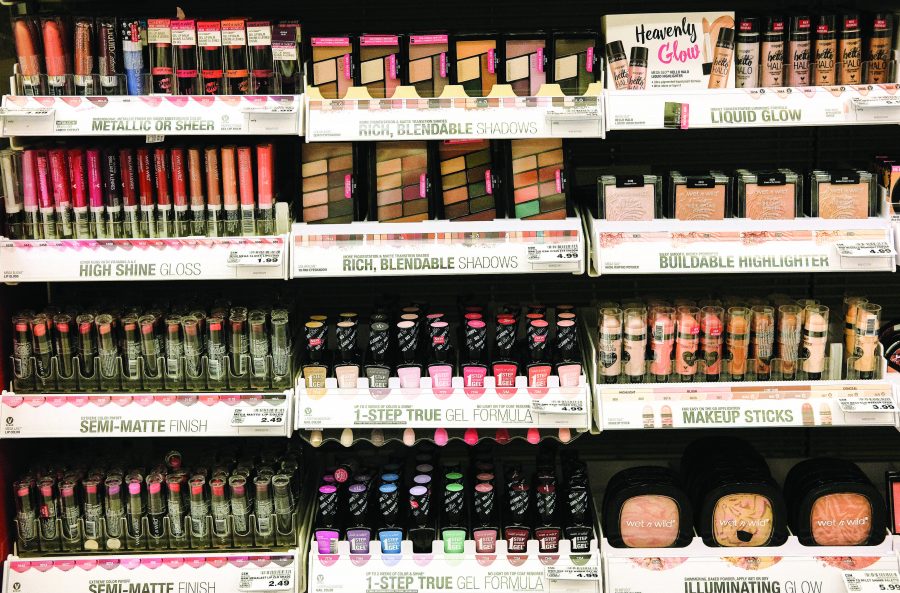Cosmetic Composition and Skincare Safety
September 19, 2019
Every day, millions of individuals cake, bake and make up their faces to perfection with various cosmetic products. The personal decision to wear makeup can help people feel more confident, express their individuality and have a set-aside time for themselves in the morning. Yet, no matter how often we think about what products, brands and techniques to try, we often forget to think about the ingredients of the cosmetic products we use. Enter: “Think Dirty,” an app designed to reveal the ingredients and potentially harmful chemicals that compose the cosmetic and skincare products that we use daily.
What’s the big idea here?
When I first got interested in using makeup more and looking into the different products that I wanted to use, I thought the only things that mattered were your budget, the products you wanted and their performance. Now, I’m no beauty guru or makeup fiend, but I do think it is important to make socially, ethically and personally responsible choices. Then, when I learned that the United States only bans 11 chemicals in cosmetics, whereas the EU and other countries have banned or restricted over 1,300 chemicals. I thought that it would be important to look into the rationale behind some of these bans.
Of the chemicals that the United States permits in cosmetic products, there are known carcinogens, respiratory irritants, nonbiodegradable ingredients and compounds that may cause nerve damage. In many cases, more research should be conducted to determine whether some of these claims truly are causal, but even if there is merely a correlation, the potential health and environmental risks should still warrant cautionary warnings. Yet, the fact that the United States lags so severely behind others in this protection of human health is extremely worrisome.
I talked to Charlene Rodriguez, a junior at the University of Utah who is studying strategic communications, and used to work as a beauty ambassador and key holder at bareMinerals. With her insights into the beauty community, she said, “It is essential that consumers know about the contents of their makeup products. Your skin is the largest organ on your body and your facial products are basically food for your skin. Giving it nourishing ingredients that enhance your skin starts with knowing what’s in your products.”
While most products do feature a list of ingredients, who actually sits down to read and research the contents of all of the products in their skincare and makeup practices, especially if you are just running into Target or Sephora to pick something up that you’ve just run out of?
Start Thinking Dirty
With the clear problem present in the legislation regarding the content of cosmetic products, the app “Think Dirty” aims to inform consumers of the ingredients of their products and the health risks and benefits associated with the various chemicals, while also suggesting similar items that have better health ratings.
Lily Tse, the founder of “Think Dirty,” launched this app in 2013 to share information and facilitate an understanding of the potential health consequences that may follow after using a product with more dangerous or “dirty” chemicals. Since 2013, “Think Dirty” has more than tripled the number of products in its database, and the app does not just focus on makeup anymore — it also features ratings for sun care, oral hygiene, dishwashing and laundry items and products designed specifically for men and babies.
Upon opening the app, you are invited to explore products based on their category. You can browse clean and safe items that are trending and you can scan or search for the products that you utilize in order to see the overall safety rating of your skincare and makeup routines. If there is a product that you use but is not available or has not yet been evaluated, you can add its information and take photos of it in order to then have the product added to the database. With a stoplight color-coding system, it is extremely easy to see if the product you’re searching for is clean and you can go ahead with using it.
I love the visual aesthetics and I’ve found that it is very easy to become informed about the products that you may be using or trying to buy in a store. At times, the ratings seem to be a bit extreme if there are chemicals that are still being researched, but in these cases, it might be better to err on the safe side. The app combines scientific research, lists the brand or the product’s certifications (ie. vegan, cruelty-free, biodegradable, etc.), recommends similar — yet cleaner — products and customer reviews are also encouraged. It is easy to get lost within the app, simply because there is so much information available, but the app’s clear categories, color-coding systems and avenues of transparent information facilitate greater awareness about your makeup products.
Moving Forward, One Flick of Mascara at a Time
With countless resources available to check the ingredients of the products you use, it is essential to be mindful of the potentially harmful ingredients that could be lurking in your everyday products. Personally, I like to reach for brands and products that are vegan and whose values align with my own, and Rodriguez chooses to “avoid using products with parabens, talc and synthetic fragrances.” Consumer habits with makeup represent extremely personal decisions, but apps like “Think Dirty” can help individuals make informed decisions about their health and beauty.












